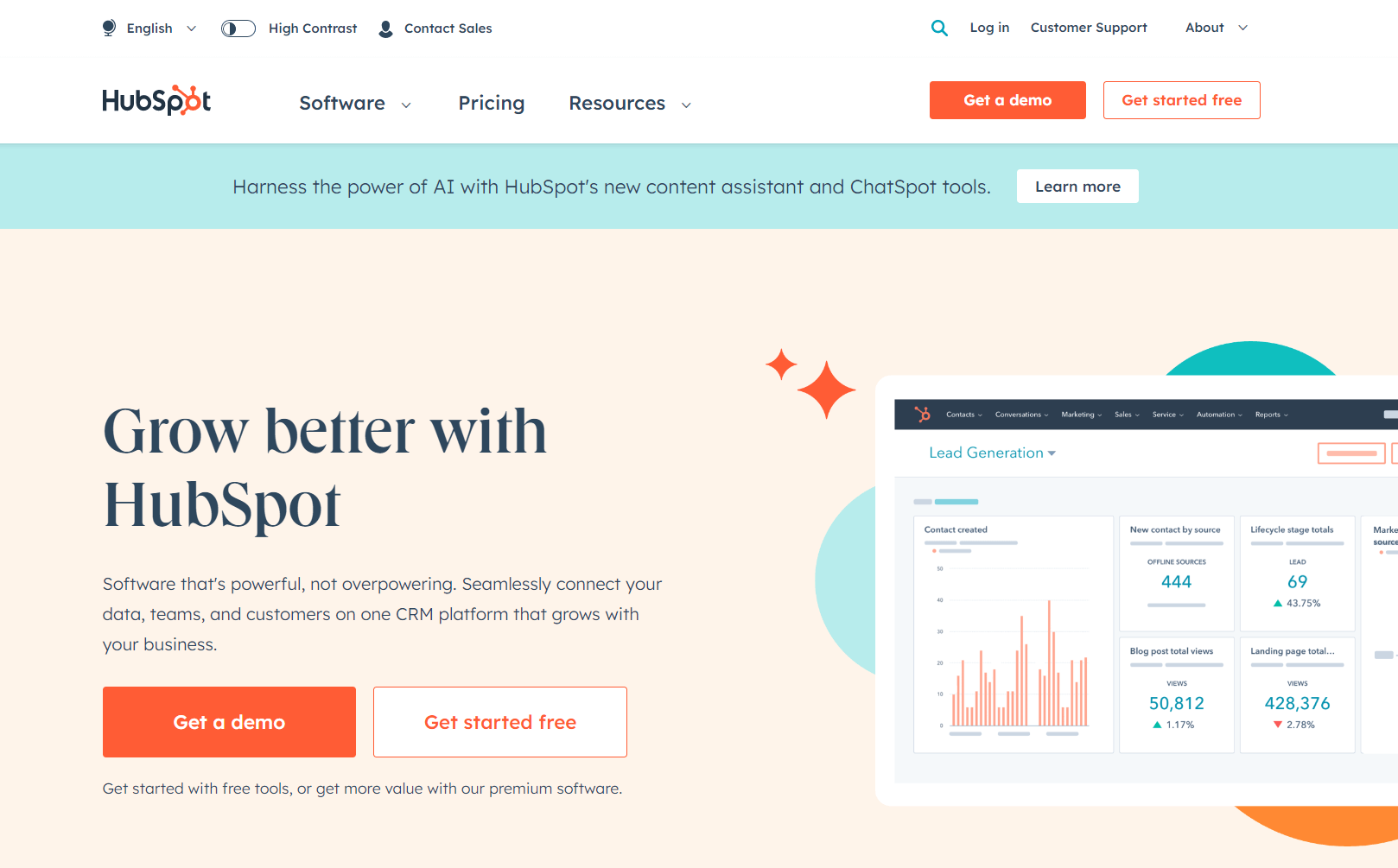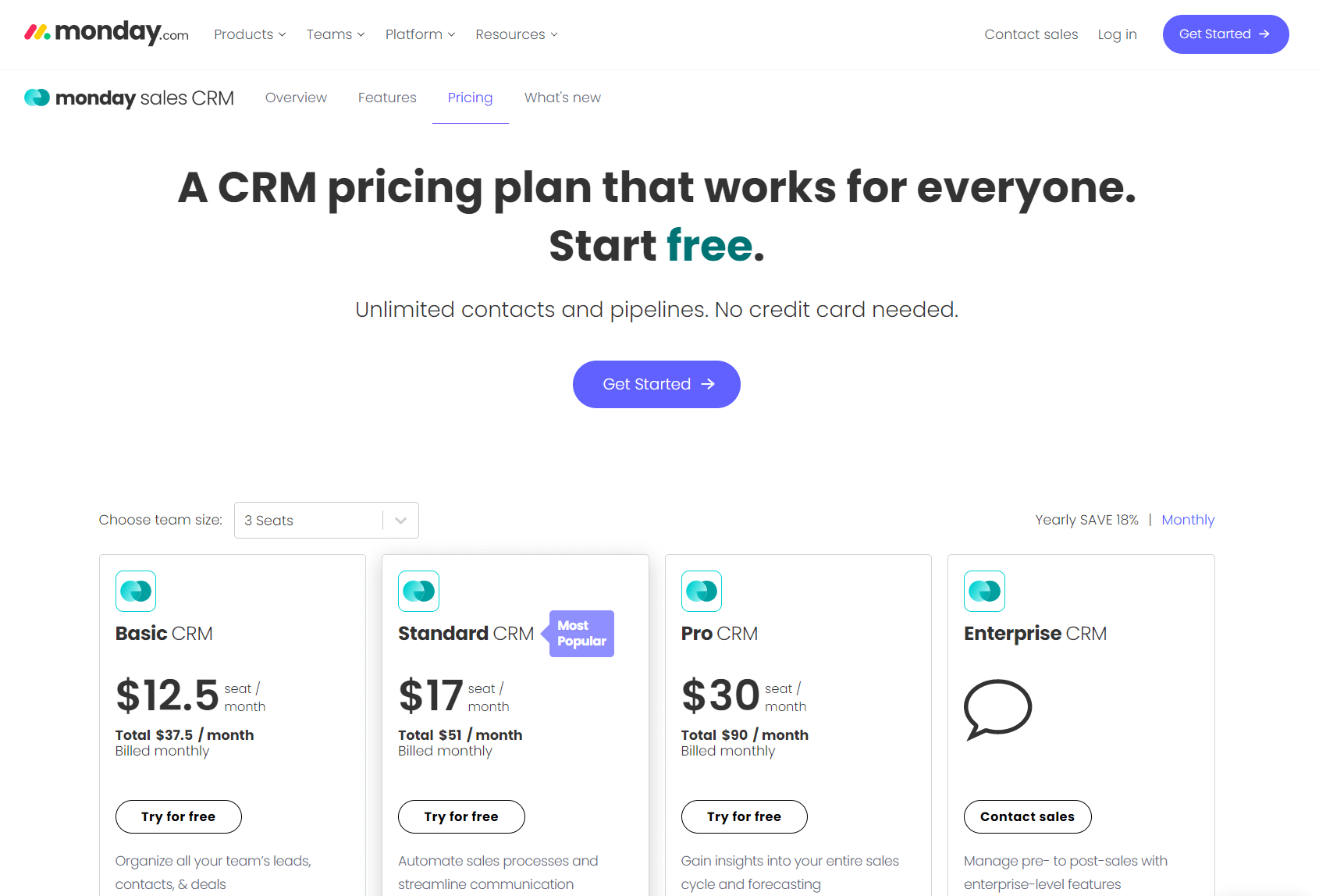In the competitive world of customer relationship management, choosing the best B2C CRM is crucial for businesses aiming to thrive in today’s digital landscape. With the right CRM in place, businesses can effectively manage customer interactions, boost sales, and enhance marketing campaigns.
This comprehensive guide delves into the key features, benefits, and selection criteria for B2C CRMs, empowering businesses to make informed decisions and optimize their customer management strategies.
The content of the second paragraph that provides descriptive and clear information about the topic
Key Features and Capabilities of Best B2C CRMs

Best-in-class B2C CRMs empower businesses to manage customer interactions effectively. They provide a comprehensive suite of features and capabilities tailored to the unique needs of B2C companies.
Essential features include omnichannel support, personalization, and automation. These capabilities enable businesses to:
- Provide seamless customer experiences across multiple channels, including web, mobile, social media, and email.
- Personalize marketing campaigns and communications based on customer preferences and behavior.
- Automate repetitive tasks, such as lead generation, email marketing, and customer service, to improve efficiency and productivity.
Omnichannel Support
Omnichannel support is crucial for B2C businesses. Customers expect to be able to interact with companies through their preferred channels and receive a consistent experience regardless of the touchpoint.
B2C CRMs with omnichannel capabilities allow businesses to:
- Consolidate customer interactions from multiple channels into a single, unified view.
- Track customer journeys across channels to identify touchpoints and areas for improvement.
- Provide personalized and consistent responses to customer inquiries, regardless of the channel used.
Personalization
Personalization is key to building strong customer relationships. B2C CRMs offer a range of personalization features, such as:
- Customer segmentation based on demographics, behavior, and preferences.
- Targeted marketing campaigns and communications tailored to each customer segment.
- Personalized product recommendations and offers based on past purchases and browsing history.
Automation
Automation is essential for streamlining B2C operations. B2C CRMs offer a variety of automation capabilities, including:
- Automated lead generation and qualification.
- Automated email marketing campaigns.
- Automated customer service workflows, such as ticket routing and response generation.
Benefits of Implementing a B2C CRM: Best B2c Crm
Incorporating a B2C CRM into your business operations can unlock a plethora of advantages, transforming the way you engage with customers and drive business growth.
Enhanced customer satisfaction is a hallmark benefit of B2C CRMs. By centralizing customer data and interactions, businesses gain a comprehensive view of each customer’s journey, enabling them to tailor personalized experiences and resolve issues swiftly. This elevated level of customer care fosters loyalty and positive word-of-mouth.
Increased Sales
- Streamlined sales processes: B2C CRMs automate repetitive tasks, freeing up sales teams to focus on high-value activities.
- Improved lead management: CRMs track leads throughout the sales funnel, providing valuable insights into their behavior and preferences.
- Cross-selling and up-selling opportunities: CRMs identify potential opportunities for additional purchases, maximizing revenue per customer.
Enhanced Marketing Campaigns
- Targeted marketing: CRMs segment customers based on demographics, preferences, and behavior, enabling tailored marketing campaigns.
- Personalized messaging: CRMs leverage customer data to deliver personalized messages that resonate with each individual.
- Campaign tracking and optimization: CRMs track campaign performance and provide insights for continuous improvement.
Numerous case studies and statistics attest to the transformative impact of B2C CRMs. For instance, a study by Salesforce found that companies using CRMs experienced a 29% increase in sales revenue and a 38% improvement in customer satisfaction.
Selection Criteria for Choosing the Right B2C CRM
Selecting the right B2C CRM is crucial for optimizing customer relationships and driving business success. Several factors need to be considered to ensure the CRM aligns with your specific business requirements and goals.
To guide your decision-making, here’s a checklist of key criteria to evaluate:
Industry-Specific Features
- Assess whether the CRM offers industry-specific functionalities tailored to your business’s unique needs.
- Consider the CRM’s capabilities in managing customer profiles, tracking interactions, and automating processes specific to your industry.
Business Size and Scalability
- Determine the size of your business and the number of customers you manage.
- Choose a CRM that can accommodate your current needs and scale as your business grows.
- Consider the CRM’s capacity to handle large volumes of data and multiple users.
Budget Constraints
- Establish a budget for your CRM implementation.
- Consider the CRM’s pricing model, including licensing fees, subscription costs, and any additional expenses.
- Ensure that the CRM’s cost-benefit ratio aligns with your business goals.
Ease of Use and Adoption
- Select a CRM that is user-friendly and intuitive for your team to adopt.
- Consider the CRM’s interface, navigation, and training resources.
- Ensure that the CRM can be easily integrated with your existing systems and workflows.
Data Security and Compliance
- Prioritize data security and compliance when evaluating CRM options.
- Review the CRM’s security measures, data encryption protocols, and compliance with industry regulations.
- Ensure that the CRM meets your business’s data protection and privacy requirements.
Customer Support and Availability
- Assess the level of customer support provided by the CRM vendor.
- Consider the availability of technical assistance, documentation, and training resources.
- Ensure that the CRM vendor offers timely and reliable support to address any issues or queries.
Integration Capabilities
- Evaluate the CRM’s ability to integrate with your existing systems, such as ERP, marketing automation, and e-commerce platforms.
- Consider the CRM’s open API and the availability of pre-built connectors.
- Ensure that the CRM can seamlessly exchange data and automate processes across different systems.
Reporting and Analytics, Best b2c crm
- Assess the CRM’s reporting and analytics capabilities.
- Consider the CRM’s ability to generate customizable reports, dashboards, and insights.
- Ensure that the CRM provides valuable data to help you understand customer behavior, identify trends, and make informed decisions.
Top B2C CRM Vendors and Platforms
Choosing the right B2C CRM vendor is crucial for optimizing customer engagement and driving business growth. To assist in this decision-making process, we have compiled a table comparing the leading B2C CRM vendors, including Salesforce, HubSpot, and Microsoft Dynamics.
This table provides an overview of their key features, pricing plans, and customer reviews to help you make an informed choice.
Vendor Comparison
| Vendor | Features | Pricing | Customer Reviews |
|---|---|---|---|
| Salesforce |
|
|
|
| HubSpot |
|
|
|
| Microsoft Dynamics |
|
|
|
Implementation and Best Practices
Implementing a B2C CRM effectively requires careful planning and execution. Here’s a step-by-step guide to ensure a smooth implementation: Data Migration:Migrate customer data from existing systems to the new CRM. Ensure data accuracy and consistency during the migration process. User Training:Provide comprehensive training to all users on CRM functionality, best practices, and data security.
Empower users to leverage the CRM effectively. Ongoing Maintenance:Regularly update the CRM with new features and security patches. Monitor system performance and address any issues promptly.
Integration with Other Business Systems
Integrating your B2C CRM with other business systems is crucial for streamlining operations and enhancing customer experiences. It allows for seamless data flow, improved communication, and a more holistic view of the customer journey.
By integrating with an ERP system, you can automate order processing, inventory management, and financial reporting. This eliminates manual data entry errors, reduces delays, and provides real-time visibility into customer transactions.
Marketing Automation Integration
- Triggers automated email campaigns based on customer behavior and preferences.
- Creates personalized marketing messages tailored to each customer’s needs.
- Tracks customer engagement and provides insights for campaign optimization.
Social Media Integration
- Monitors customer interactions on social media channels.
- Provides insights into customer sentiment and preferences.
- Allows for targeted social media advertising campaigns.
Emerging Trends in B2C CRM

The landscape of B2C CRM is constantly evolving, driven by technological advancements and changing customer expectations. Here are some key trends that are shaping the future of customer management:
Artificial Intelligence (AI) and Machine Learning (ML):AI and ML are transforming B2C CRM by automating tasks, providing personalized recommendations, and improving customer service. AI-powered chatbots can handle customer queries 24/7, while ML algorithms can analyze customer data to identify patterns and predict behavior.
Omnichannel Engagement
Customers today expect to interact with businesses across multiple channels, including websites, mobile apps, social media, and physical stores. B2C CRM systems are evolving to provide a seamless omnichannel experience, ensuring that customer data is synchronized across all channels and that interactions are consistent regardless of the touchpoint.
Conclusive Thoughts
As businesses navigate the ever-evolving customer relationship management landscape, embracing the best B2C CRM solutions becomes imperative. By carefully considering the factors Artikeld in this guide, businesses can empower themselves to make strategic choices that drive customer satisfaction, increase revenue, and establish a solid foundation for long-term growth.
Query Resolution
What are the key features to look for in a B2C CRM?
Essential features include omnichannel support, personalization capabilities, marketing automation, customer segmentation, and robust reporting.
How can a B2C CRM benefit my business?
B2C CRMs streamline customer interactions, improve customer satisfaction, increase sales, enhance marketing campaigns, and provide valuable insights for data-driven decision-making.
What factors should I consider when selecting a B2C CRM?
Consider your industry, business size, budget, specific business needs, and the level of customization and integration required.